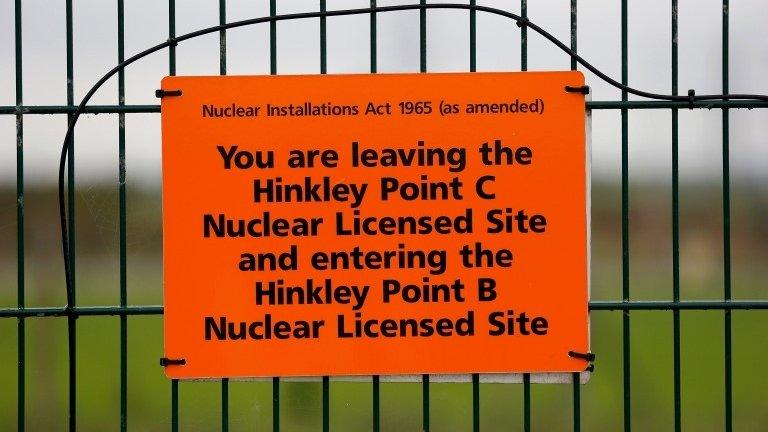Hinkley C: Is steep price a good deal for British or Chinese?
- Published
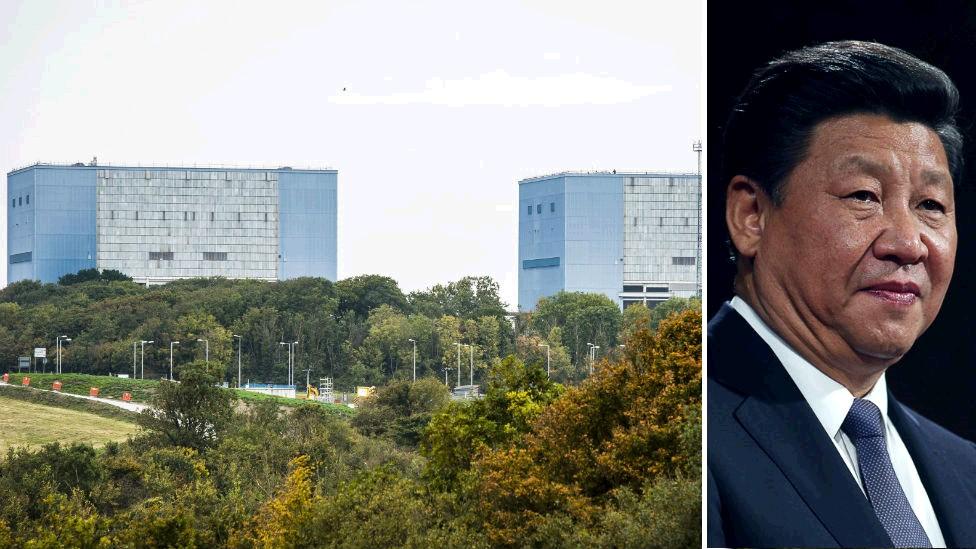
Is the deal to build Hinkley a good deal for the Chinese or British?
Go to the wholesale electricity market today and a unit of electricity, measured in mega watt hours, will cost you around £45. To build Hinkley C nuclear power station, Chinese and French energy firms have been guaranteed £92.50 per mega watt hour.
Any market trader can tell you that's a fairly steep price.
A seasoned, impartial energy market analyst Henry Edwardes-Evans puts it like this: "The market would never have built this project, not based on the price of the wholesale electricity market."
So why do British ministers insist the price they are paying is such good value?
Mr Edwardes-Evans, an analyst at Platts Energy Consultants, points out that this deal is driven by politics, not business. Ministers here worry that the UK relies too heavily on fossil fuels, often controlled by volatile foreign countries, imported coal, oil from the Middle East or Russian gas. In the second quarter of 2015, 50.7% of all electricity in the UK came from coal and gas.
Ain't no sunshine
The UK is making more electricity from wind, solar and hydro than ever before. This year, 25.3% came from so-called renewables, up from 16.7% a year earlier.
"But the wind does not always blow, and the sun does not always shine," Dr Heather Wyman-Pain, an energy analyst at the University of Bath said.
It's the most common objection to renewables, and also the most telling.
She goes on: "We need something to rely on when the renewables are not generating, when it's dark. And nuclear is the best option for that."
She explains the nuclear option as a kind of fixed rate mortgage. Yes, on today's prices, Hinkley Point's electricity looks expensive. But it is guaranteed for 60 years, whatever happens to the Middle East, to Russia, to the global climate.
This one plant will produce 7% of the UK's total energy needs. If it works, three more projects are planned, for Anglesey, Suffolk, and Oldbury on the Severn just north of Bristol.
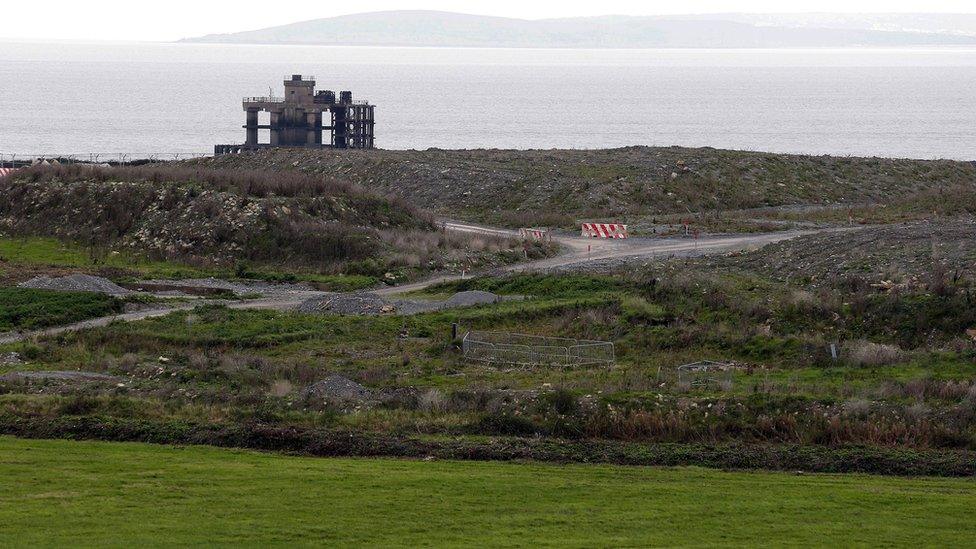
The planned site for Hinkley C is along the coast of the Bristol Channel
"We are paying for certainty", Dr Wyman Pain explains, with a grim smile.
Others wonder who is getting the real guarantee.
"The only guarantees are guaranteed profits to the French and Chinese companies," says Dr Mike Hannis, who studies the ethics of international energy deals at Bath Spa University.
They too have taken a fixed price bet, a 35-year guaranteed income stream. And Dr Hannis believes the money could have been better spent.
"If you spent £25bn on new wind and solar schemes, and the storage technology that is coming on stream, you would make far more electricity than Hinkley will generate."
Today, British ministers are smiling. They have secured a £24bn power plant without spending a pound of taxpayers' money.
They believe they have paved the way for a new generation of nuclear plants that will, in time, supply a quarter of all our power needs. And they've become what George Osborne calls "China's best business partner".
Others worry that UK households will be paying twice the going rate for nuclear power, feeding guaranteed profits to French and Chinese state owned firms, and allowing foreign powers to control our infrastructure at the same time.
A good deal? This one is not a business calculation, but a political judgement.
- Published20 October 2015
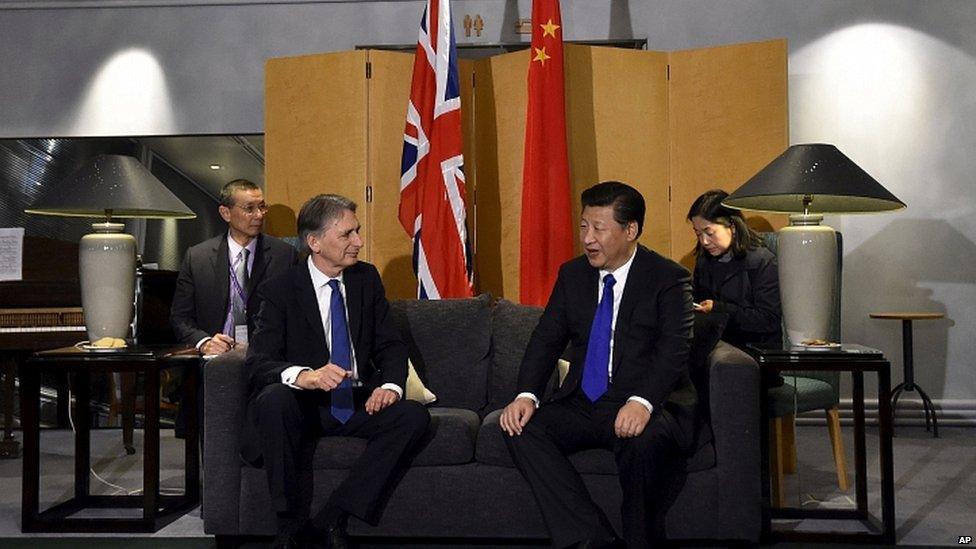
- Published20 October 2015
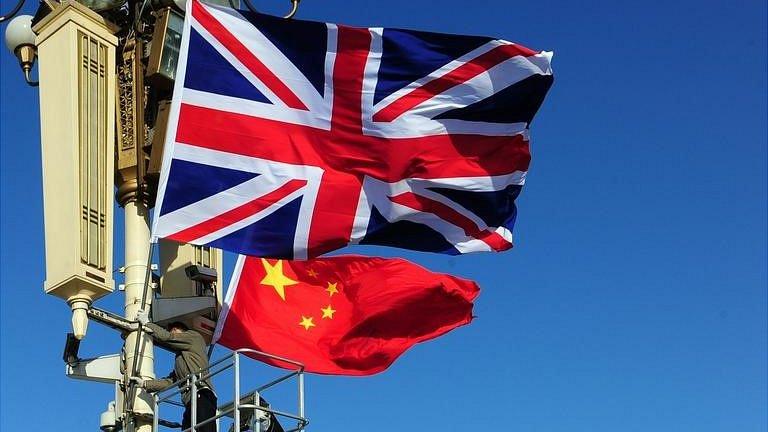
- Published18 October 2015
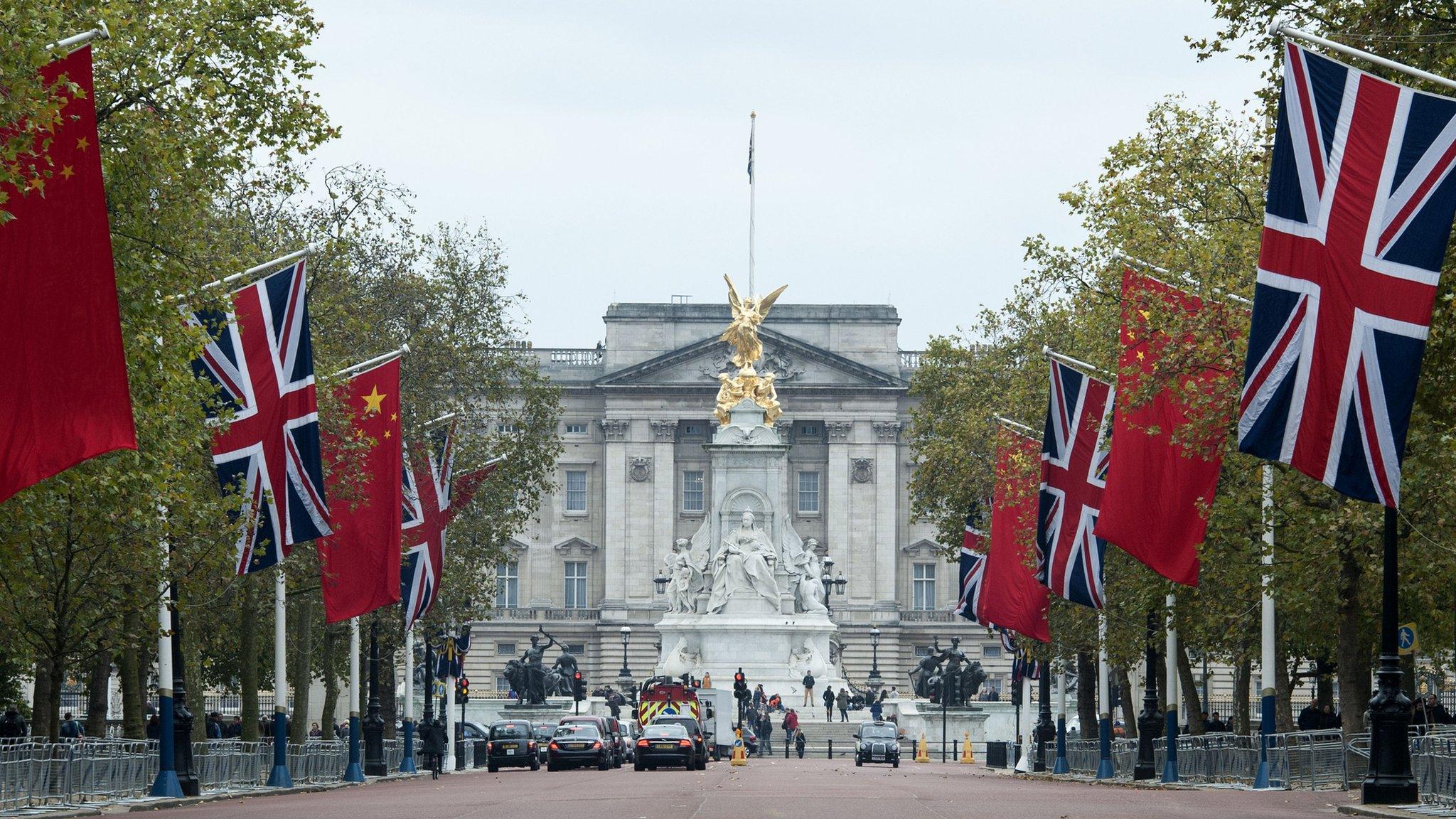
- Published24 September 2015
